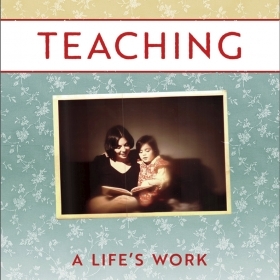Adelaide Hines Sanford, M.A. ’50
From classroom teacher to principal to vice chancellor of the New York State Board of Regents, Adelaide Hines Sanford, M.A. ’50 is one of the nation’s foremost advocates for the education of students of African ancestry.

Bruce Weller
Talk to people who know Adelaide Hines Sanford, M.A. ’50, and you hear words like “icon” and “hero.” Within New York education circles, she’s often referred to as a living legend.
Sanford, 95, is a scholar, activist, and one of the nation’s foremost advocates for the education of students of African ancestry.
“You cannot talk to a Black public school educator of note in New York state who hasn’t been impacted by Dr. Sanford’s legacy,” says Mark Winston Griffith, executive director of the Brooklyn Movement Center, a Black-led community organizing group based in central Brooklyn, N.Y. “Dr. Sanford was more than more than a public school teacher and administrator. She was a revolutionary, disrupter, and iconoclast who, oxymoronically, worked within the system.”
Sanford realized early on that “the system,” which often labeled Black children, particularly those in urban areas, as “disadvantaged,” “at-risk,” or “culturally deprived,” needed reforming. She also learned that you can’t help students without first helping their parents and educating them about how to advocate on behalf of their children, schools, and teachers.
Sanford’s more than 50-year career in public education—from classroom teacher to vice chancellor of the New York State Board of Regents—provided her a unique position from which to view and experience the entire educational landscape.
Sanford says she didn’t necessarily set out to become a teacher, although she comes from a family of many educators. “It wasn’t a question of what you wanted to do. It was more like what you had to choose from to make a living,” says Sanford, who was born and raised in Brooklyn and now lives in the Philadelphia suburbs. “How will you make a productive life for yourself?”
Her first teaching job after receiving her master’s degree in education from Wellesley was at P.S. 28 in Brooklyn’s Bedford-Stuyvesant neighborhood in 1950.
Sanford was the first African American teacher at the school, and she recalls not being allowed to eat lunch with the white teachers. When she prepared to eat in the lunchroom, she was met with, “You can’t eat in here.…” For the first three years, she ate alone in her classroom—until more Black teachers joined the staff.
Inside her own classroom, the challenges were no less daunting, but they ultimately proved professionally rewarding. She was assigned to what was called an “opportunity class”—a class of fourth-, fifth- and sixth-graders, mostly Black boys, who were considered to be behavior problems. It’s where she says she learned the greatest lessons about teaching.
Although the boys put her through some difficult and embarrassing situations in efforts to get her to leave, she was determined to stay, explaining to them that she cared about them—plus she needed the job.
She discovered why the boys weren’t engaged in their classwork.
“They rejected the curriculum because it had no relevance to their lives,” Sanford says. “I asked them, ‘What do you want to read?’ And they said, ‘I want to read about me.’ I said, ‘Tell me your story, and I’ll write it.’”
On large poster paper, Sanford would write their stories and credit them as the authors.
“That’s how I learned to teach,” Sanford says. “I learned a lot from those boys. First, they needed to learn and read about themselves. And they learned to read because they needed to know who they were.”
The students were then more receptive about learning their other lessons. Sanford says it’s essential that Black children know their history. “There have been concerted efforts since the very beginning not to teach Black children their history,” she says. “Children have the right to know who they are and where they come from.”
Sanford would remain at P.S. 28 for six years before moving on to P.S. 21, the Crispus Attucks School, which originally served a public housing project. She spent nearly 30 years there, serving as a classroom teacher, assistant principal, and then principal for two decades, during which time she earned a Ph.D. at Fordham University. The city and state recognized the Crispus Attucks School for its student achievement, teacher morale, and special programs for the gifted and talented.
Sanford is proud that during her tenure the school produced doctors, lawyers, judges, consultants, and other professionals. Furthermore, since her retirement in 1986, some of the past and current principals of the school have been her former students.
After she retired from the NYC school system, Sanford was unanimously elected as member-at-large of the New York State Board of Regents, filling the seat of outgoing regent Kenneth Clark, the renowned Black psychologist whose groundbreaking research about race and inequality contributed to the ruling of the U.S. Supreme Court that racial segregation in public education was unconstitutional.
Sanford said serving on the board was one of her more challenging endeavors, but she believed she had something to contribute. “By that time, I had a greater sense of the enormity of issues that faced the educational system,” Sanford recalls. “You can’t have a successful system or society when only a portion of people are successful.”
Sanford served three terms as a member-at-large on the board, and she chaired its committees on low-performing schools, higher education, and the professions. In 2001, she was elected vice chancellor, and she continued to serve on the board until 2007, ending a 20-year tenure and earning the distinction of vice chancellor emerita.
Sanford founded the Board for the Education of People of African Ancestry, which promotes education reform to support the development of Black children, and Clarke House in Harlem. Her life’s work has been recognized with the establishment of the Adelaide L. Sanford Institute; the Vice Chancellor Emerita Adelaide L. Sanford Scholarship; and the Hines and Sanford Families’ Recognition Award for Study and Research in the African Experience in New York State, the Americas, and the Diaspora. She’s also the recipient of numerous New York and national honors, including four honorary doctorates, the Humanitarian Award from the Congressional Black Caucus Foundation, and a distinguished service award from the National Association of State Boards of Education (NASBE).
“As a teacher and principal, Dr. Sanford did not permit adverse circumstances to be a sustained barrier to student success,” says Brenda Lilienthal Welburn, former executive director of the NASBE. “As a policymaker, she did not allow colleagues’ biases to stand in the way of holding all students to high standards. She never backed down from her beliefs and never minced words to appease the feelings of adults at the expense of children.”


